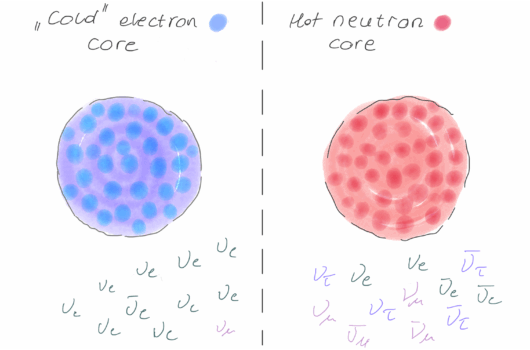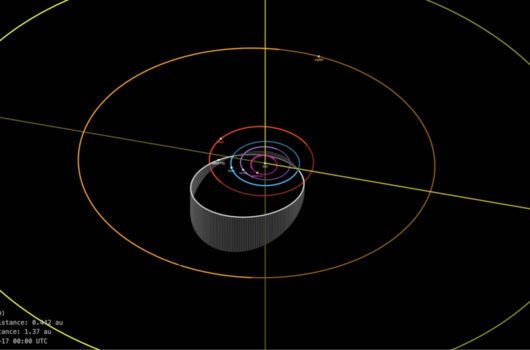General-relativistic radiation transport scheme in Gmunu II: Implementation of novel microphysical library for neutrino radiation — Weakhub
General-relativistic radiation transport scheme in Gmunu II: Implementation of novel microphysical library for neutrino radiation -- Weakhub
View
Abstract
We introduce ![]() , a novel neutrino microphysics library that provides opacities and kernels beyond conventional interactions used in the literature. This library includes neutrino-matter, neutrino-photon, and neutrino-neutrino interactions, along with corresponding weak and strong corrections. A full kinematics approach is adopted for the calculations of
, a novel neutrino microphysics library that provides opacities and kernels beyond conventional interactions used in the literature. This library includes neutrino-matter, neutrino-photon, and neutrino-neutrino interactions, along with corresponding weak and strong corrections. A full kinematics approach is adopted for the calculations of ![]() -processes, incorporating various weak corrections and medium modifications due to the nuclear equation of state. Calculations of plasma processes, electron neutrino-antineutrino annihilation, and nuclear de-excitation are included. We also present the detailed derivations of weak interactions and the coupling of them to the two-moment based general-relativistic multi-group radiation transport in the
-processes, incorporating various weak corrections and medium modifications due to the nuclear equation of state. Calculations of plasma processes, electron neutrino-antineutrino annihilation, and nuclear de-excitation are included. We also present the detailed derivations of weak interactions and the coupling of them to the two-moment based general-relativistic multi-group radiation transport in the ![]() eneral-relativistic
eneral-relativistic ![]() ltigrid
ltigrid ![]() merical (
merical (![]() ) code. We compare the neutrino opacity spectra for all interactions and estimate their contributions at hydrodynamical points in core-collapse supernova and binary neutron star postmerger remnant, and predict the effects of improved opacities in comparison to conventional ones for a binary neutron star postmerger at a specific hydrodynamical point. We test the implementation of the conventional set of interactions by comparing it to an open-source neutrino library
) code. We compare the neutrino opacity spectra for all interactions and estimate their contributions at hydrodynamical points in core-collapse supernova and binary neutron star postmerger remnant, and predict the effects of improved opacities in comparison to conventional ones for a binary neutron star postmerger at a specific hydrodynamical point. We test the implementation of the conventional set of interactions by comparing it to an open-source neutrino library ![]() in a core-collapse supernova simulation. We demonstrate good agreement with discrepancies of less than
in a core-collapse supernova simulation. We demonstrate good agreement with discrepancies of less than ![]() in luminosity for all neutrino species, while also highlighting the reasons contributing to the differences. To compare the advanced interactions to the conventional set in core-collapse supernova modelling, we perform simulations to analyze their impacts on neutrino signatures, hydrodynamical behaviors, and shock dynamics, showing significant deviations.
in luminosity for all neutrino species, while also highlighting the reasons contributing to the differences. To compare the advanced interactions to the conventional set in core-collapse supernova modelling, we perform simulations to analyze their impacts on neutrino signatures, hydrodynamical behaviors, and shock dynamics, showing significant deviations.




